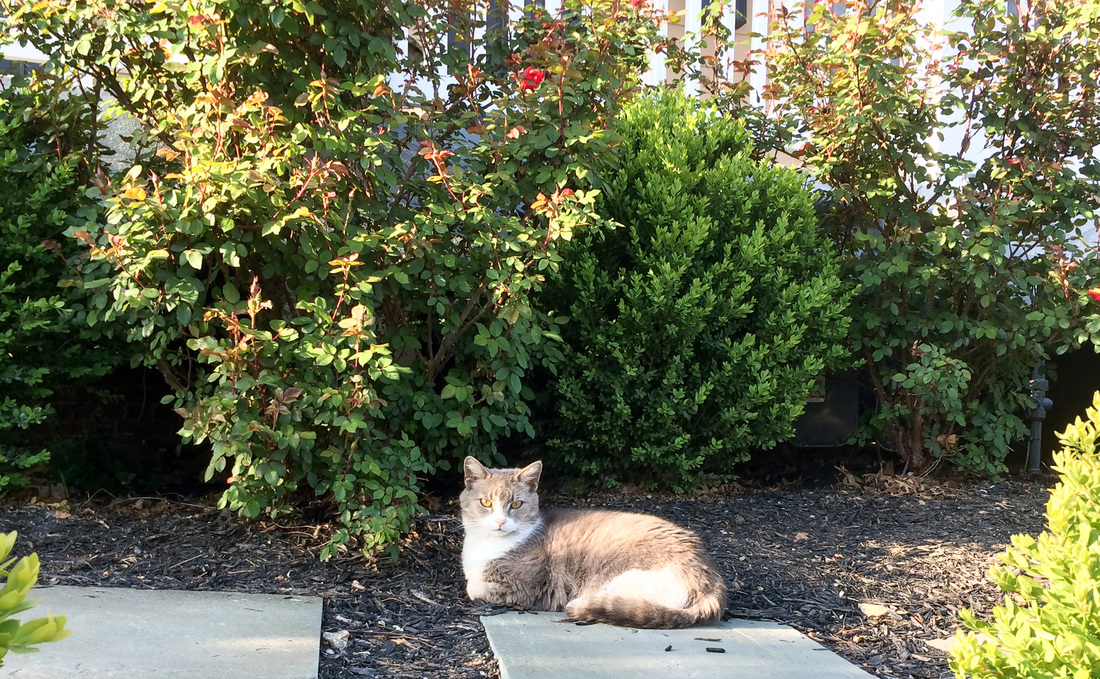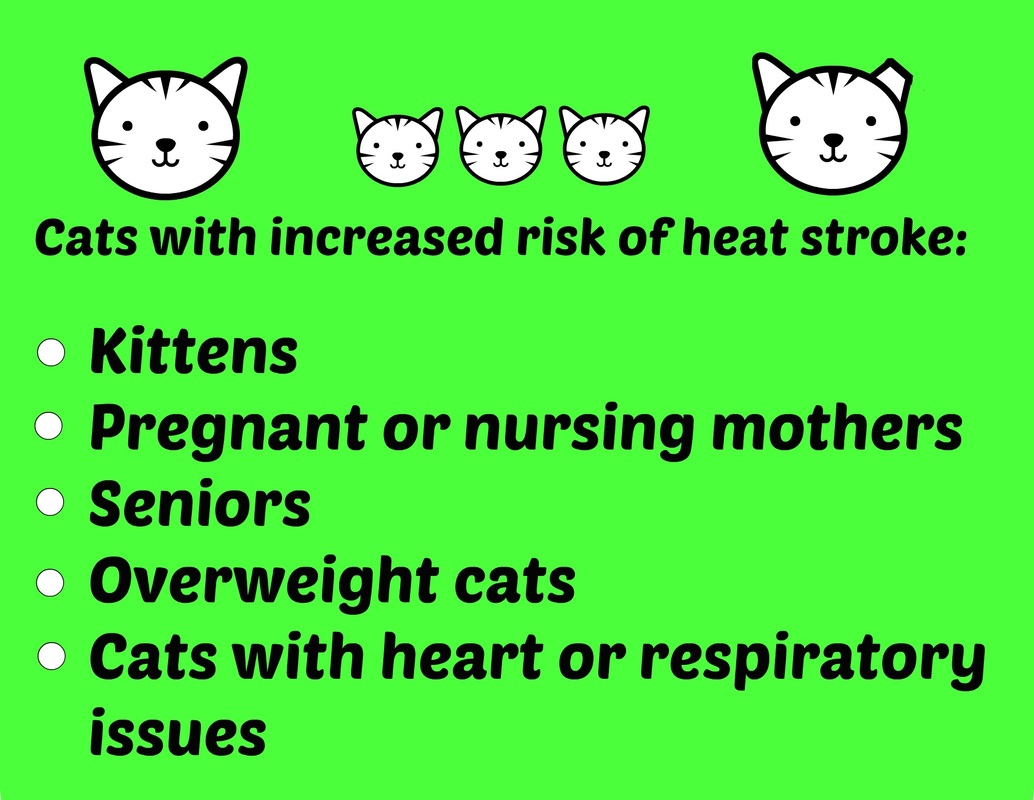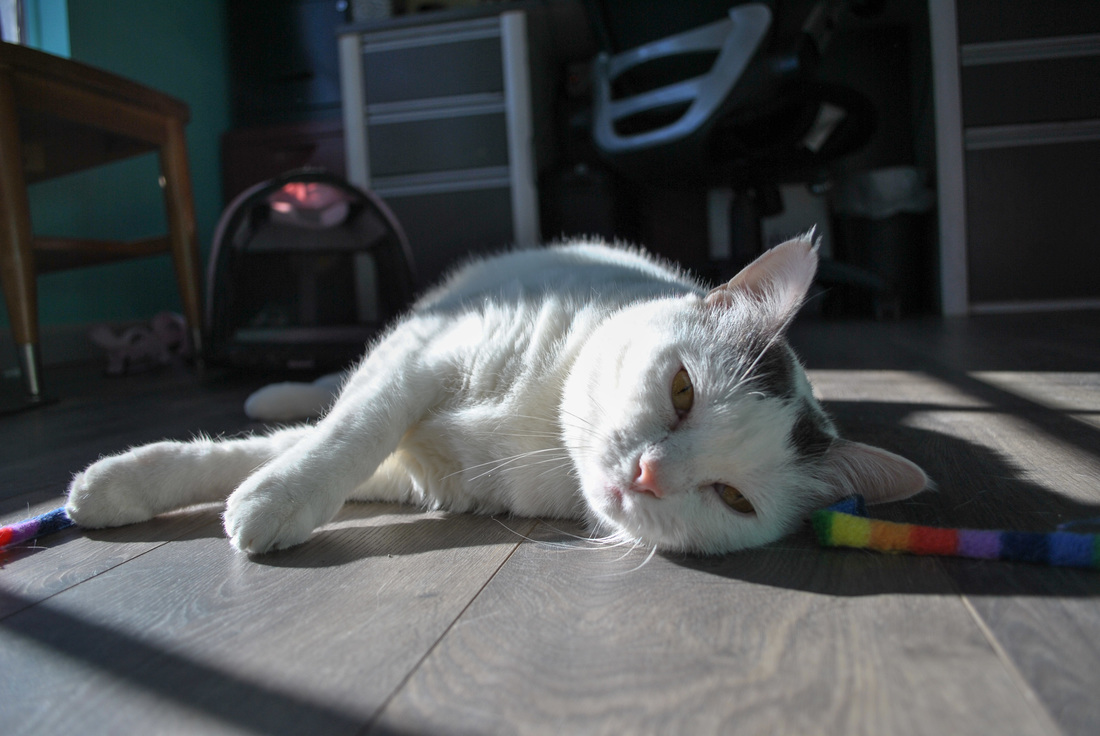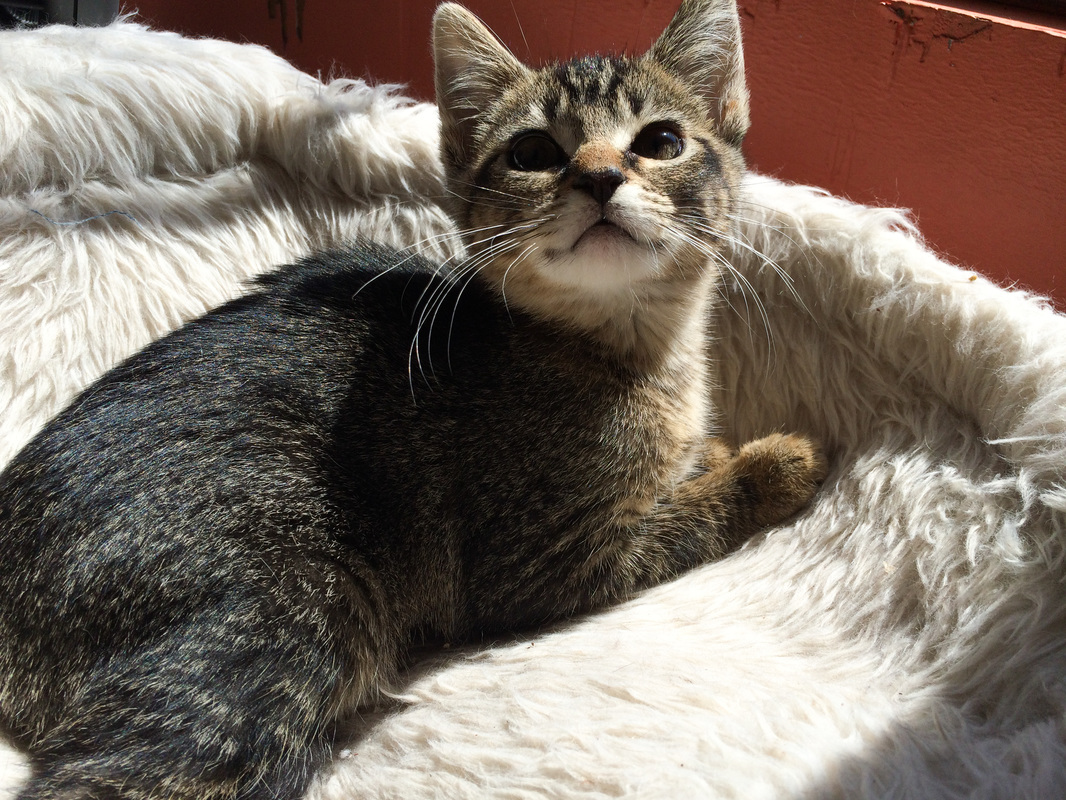|
Let’s say it’s summertime and your cat is due for vaccine booster shots, so you make an appointment with your vet. It might be a short drive, but if you stop to run an errand on the way and don’t park in the shade, you could be putting your cat at risk. Cats who have an increased risk of heat stroke:
Cats deal with excessive heat in a manner similar to dogs; they sweat a small amount from their foot pads, and also disperse heat through panting. In most cases this is adequate, but in situations of extreme or fast-rising temperatures, it may not be enough to prevent heat exhaustion or heat stroke. A heat-stressed cat may begin to pant rapidly, and her paws may become sweaty or clammy. She may move around anxiously, searching for a cooler spot. Prolonged heat stress can lead to heat exhaustion, and eventually heat stroke, which can cause serious organ damage or failure. Symptoms of heat exhaustion:
Of course, the best way to avoid heat exhaustion and stroke is to make sure your cat doesn’t experience extreme and prolonged environmental heat. However, if your cat shows any of the above symptoms and is or has been in a hot environment, there are a few things you should do immediately: Move the cat to a cool environment
If you find your cat in distress but conscious, the above steps may be enough to bring her body temperature back to normal, but you should contact a vet anyway for further instructions. Cats should be closely monitored for symptoms or unusual behavior in the days after a heat-related event, as the effects of over-heating may take some time to become apparent. If you find your cat unconscious in a hot place, the steps above might be helpful in the immediate moments, but she’ll need emergency treatment by a professional as soon as possible. Trap-Neuter-Return (TNR) in warm weather
The warmer months of the year are popular trapping times for people doing TNR projects and for colony caretakers. If you’re out trapping during hot weather, be mindful of the places where cats in traps might encounter extreme temperatures. If you’re transporting a number of trapped cats to a clinic, be sure the vehicle’s interior stays at a comfortable temperature and do not leave trapped cats in a vehicle unattended. If you have a number of cats at a holding site waiting for transport, make sure the cats are in a shady place, out of direct sunlight. And be aware that paved surfaces can get very hot, so it’s best to minimize the time a cat spends in a trap on exposed pavement. A good rule of thumb is if an environment feels uncomfortably warm for a person, it will be uncomfortably warm for a cat. Even sunrooms and garages, spaces in the home we may assume are safe, can become unbearable on hot days if not properly ventilated. And do not underestimate just how quickly the temperature inside of a car can rise when under direct sunlight. An increase of 20 degrees or more can happen in a matter of minutes! Sources: http://www.pethealthnetwork.com/cat-health/cat-diseases-conditions-a-z/can-cats-get-heat-stroke/page/0/1 http://www.petmd.com/cat/emergency/common-emergencies/e_ct_heat_stroke http://www.cat-world.com.au/heat-stroke-in-cats https://www.avma.org/public/PetCare/Pages/Estimated-Vehicle-Interior-Air-Temperature-v.-Elapsed-Time.aspx
6 Comments
Ruthanne Serreino
9/11/2016 11:12:29 am
Please help me to find a home for 3 outdoor cats that I have been feeding and providing shelter for, for 2 1/2 years. I thought I had a place to take them when I move into my new home. It is in an adult community and I can't have more than 3 cats inside, which I have. I want to keep one of the cats, as I had her spayed along with her 3 kittens 2 1/2 years ago. I was able to find homes for 2 of her kittens, however, the third one is now my baby. The remainder cats outside are around 3 to 5 years, very sweet, know there names, come when I call them and stay around my very parklike back yard. I have provided a 5'L x 2'H feeding station and 2 shelters packed with hay/straw.
Reply
...
9/11/2016 12:59:27 pm
Please check the Cat Action Teams for a group in NJ http://www.saveacat.org/cat-action-teams.html
Reply
7/27/2018 08:06:00 am
I have a friend who died recently because of heat stroke. Of course, it was painful of us because we didn't even think that a simple season of heat can take his life. Same thing with animals, especially with the cats. This is the reasons why we should be knowledgeable about heatstroke so that we can protect ourselves as well as the animals around us. It could be very dangerous once we are left clueless during this kind of situation. By the way, thank you for all the advices you have cited above. Now I know how to protect myself with this kind of situation!
Reply
8/13/2019 11:19:10 pm
Thank you very much for sharing this very informative and important data. I have six cats, and I get really nervous every time summers is just around the corner. Cats usually do not like "water" that is why I am having a hard time taking care of them especially during summer. I get really afraid what if they got heat stroke or got sick because of the heat? Cats have been my companion for a long time now. I am not that friendly so I do not have that much of friends to talk to. I often end up talking to my cats. I really am happy to know these facts. Now, I won't get afraid on how should I take care of my cats when summer comes.
Reply
Leave a Reply. |
Details
AuthorAlley Cat Rescue is leading in the way in promoting humane and compassionate care for ALL cats. Archives
January 2024
Categories
All
|




 RSS Feed
RSS Feed